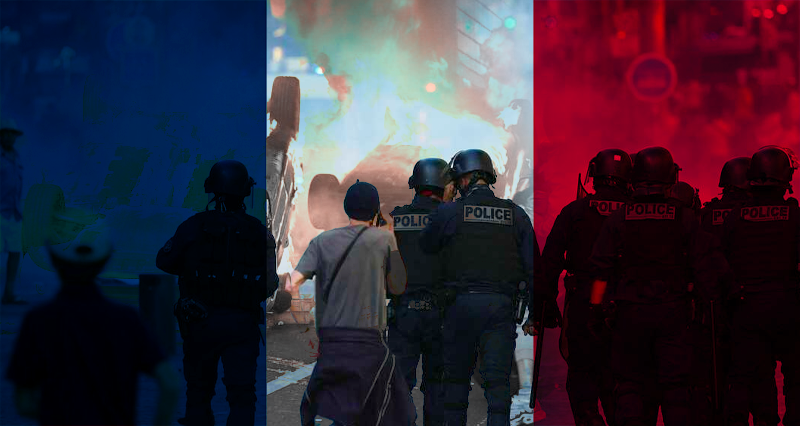United World International author Onur Sinan Güzaltan commented on the ongoing events in France to the Turkish Service of the Islamic Republic of Iran News Agency (IRNA).
Translated into English by Uwidata.
First of all, I would like to remind that similar protests took place in 2005, first in Paris and then in the suburbs. The reasons and roots are multidimensional.
The first is the historical dimension. France is actually paying today for the colonization of Africa. Most of the people in the current protests are young people who are French citizens but whose families came to France from Africa, from North Africa and were ostracized by society.
Secondly, we can address the socio-economic dimension. The French government has squeezed migrants into the suburbs. France has been pursuing this as a state policy for a long time. Children born in France and naturalized have always been excluded from social, economic and educational life, even though they are officially considered French citizens. These events can be seen as a manifestation of this situation.
Thirdly, from a realpolitik perspective, European countries followed the US’s instructions and joined the anti-Russian sanctions. However, it is obvious this is not something in Europe’s economic interests. Europe is suffering the deepening of the current economic crisis because of this policy. Today France is facing the highest youth unemployment rate in its history. Many European countries have similar problems. Again, in this context, if we consider the change of prime ministers one after another in the UK, the political crisis in Germany, the overall situation in Italy and Spain, we can clearly say that Europe is completely shaken today. Europe will either side with the US and bear the consequences or integrate more with Asia and thus prosper. In fact, today’s events in Europe, especially in France, are birth pangs of these. As I mentioned, these events have historical, socio-economic and geopolitical dimensions.
And when we come to the question of who will benefit from this process, Emmanuel Macron of course will get even weaker. He was already. How he will survive the next 5 years is frankly highly questionable. These kinds of protests in a way strengthen Marine Le Pen, the right-wing parties, because people tend towards security policies in such situations.
Specifically, a state of emergency could be declared particularly in some neighborhoods. There would be measures such as a curfew at some hours in some areas.
I can summarize the situation as follows: The protesters in France, especially the youth and mostly the suburban youth are unorganized, lacking of any ideological base, strategy and tactics. They are rather showing their anger in an instinctive manner.
In the current situation, there is little chance that these protests would succeed or change the Macron government; indeed they neither have any ties with a group from within the state nor the support from within the law enforcers. The state mechanism is completely against them. We can characterize the actions of these groups as powerless and non-ideological waves hitting the imperialist shores. Having no chance to break the wall, they can only erode. If a political movement can organize these groups and middle class movements like the Yellow Vests together in a harmonized unity, things would take a turn.

















Leave a Reply